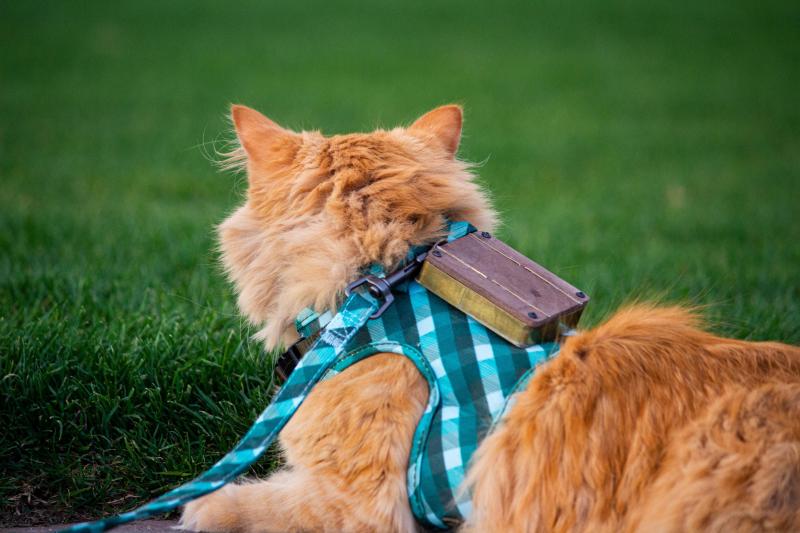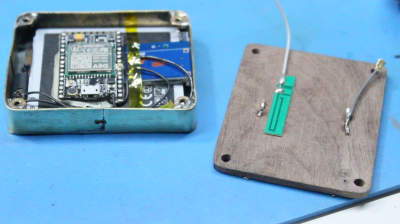Handmade GPS Tracker Keeps an Eye on Adventurous Cats

One of the most convenient things about having cats is their independent lifestyle: most are happy to enjoy themselves outside all day, only coming back home when it’s time for dinner and a nap. What your cat gets up to during the day remains a mystery, unless you fit it with a GPS collar. When [Sahas Chitlange] went searching for a GPS tracker for his beloved Pumpkin, he found that none were exactly to his liking: too slow, too big, or simply unreliable. This led him to design and build his own, called Find My Cat.
The heart of the device is an A9G GSM/GPS board, based on the RDA8955 system-on-chip. [Sahas] combined this with a data SIM card, a 2600 mAh lithium battery and a charger module to make a completely self-contained GPS tracker capable of transmitting location information in real time. The system is housed in a hand-made brass box designed to be attached to a cat harness, where it sits safely on Pumpkin’s back.
 It took a bit of experimentation to find a workable antenna setup for this system, because the brass box works as a Faraday cage. [Sahas] therefore made the lid of the enclosure out of wood, and embedded two thin strips of brass within it to make a dipole antenna. Tests in his car confirmed that it got a reliable fix and was able to communicate through the GSM network.
It took a bit of experimentation to find a workable antenna setup for this system, because the brass box works as a Faraday cage. [Sahas] therefore made the lid of the enclosure out of wood, and embedded two thin strips of brass within it to make a dipole antenna. Tests in his car confirmed that it got a reliable fix and was able to communicate through the GSM network.
On the software side, The A9G module came with a C/C++ based SDK that [Sahas] found so inconvenient to use that he decided to replace the whole thing with a MicroPython setup. He then programmed it with a simple routine that waits for an MQTT message to start tracking, and otherwise stays in sleep mode. Location data is sent to a Raspberry Pi running Traccar, an open-source GPS tracking server that provides a ready-to-use web interface. Finding Pumpkin’s location is now as simple as opening a web browser, navigating to the Pi’s IP address and looking at the map.
As in many wearables, the largest part of the system is the battery, which in this case provides a good twelve days of usage between recharge sessions. We’d assume that to be plenty, unless Pumpkin is one of those cats that like to go on multi-week expeditions. Limited battery life is a common problem for GPS pet trackers; perhaps switching to an ultra-low-power LoRa-based system might help.
from Blog – Hackaday https://ift.tt/rsDhJp4
Comments
Post a Comment